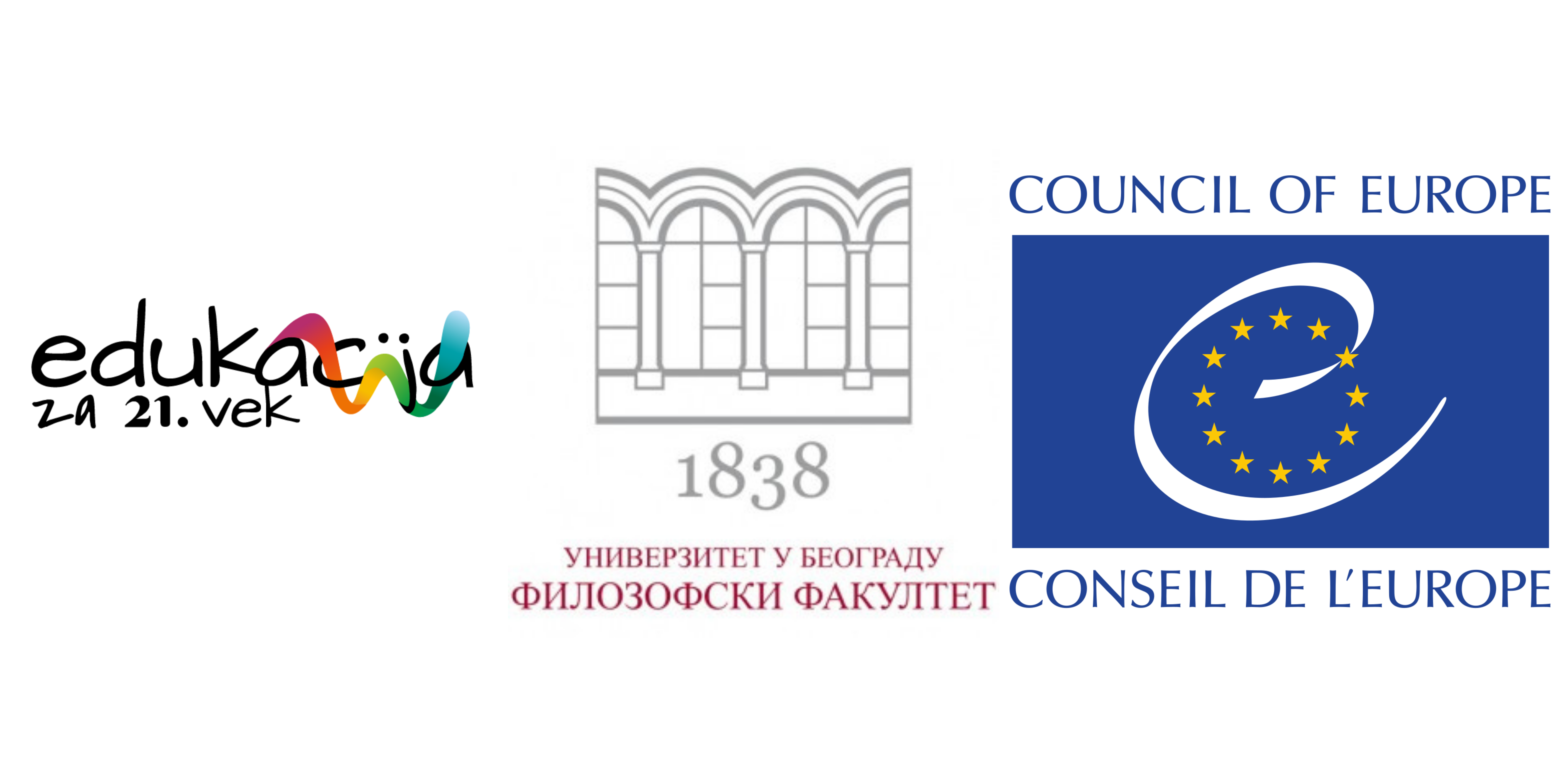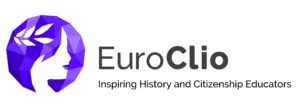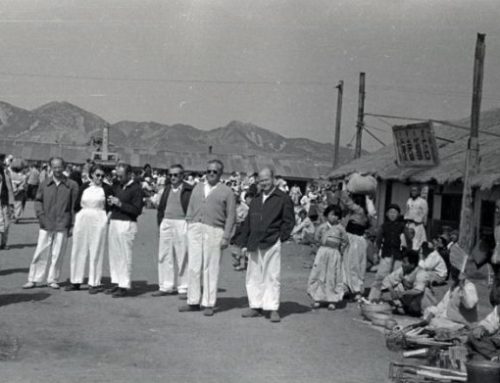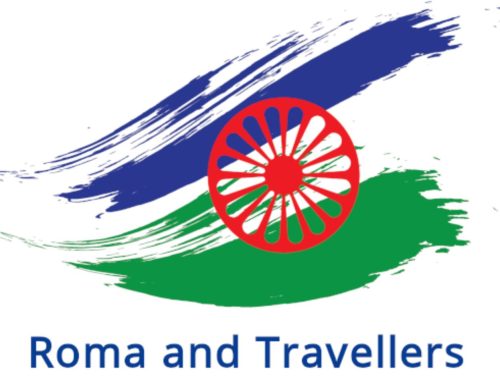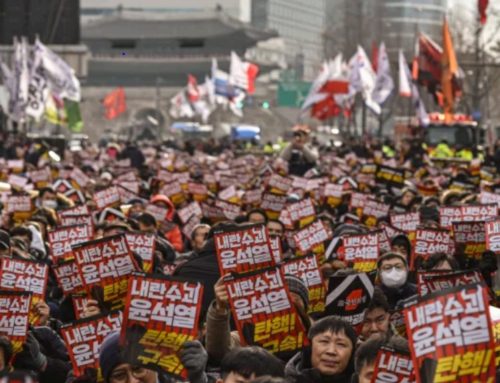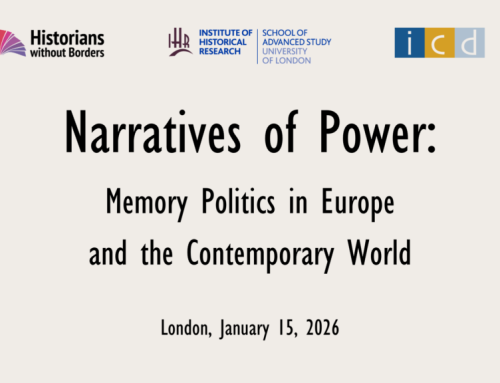The two-day seminar/workshop on Challenges of history teaching in Europe co-organized by the Council of Europe Office in Belgrade, NGO Education for 21st Century and Faculty of Philosophy University of Belgrade within the Month of Francophonie, with the support of Embassy of Switzerland in Serbia, Embassy of France in Serbia, EuroClio association of history educators from Netherlands and Le Courrier des Balkans grow into the professional exchange of ideas and experiences between historians, experts in education, teachers, journalists, politicians and diplomats from Europe and Serbia.
The event was initiated by the Council of Europe Office and Embassy of Switzerland in Belgrade with the main objective to promote the Observatory on history teaching in Europe (as Enlarged Partial Agreement of Council of Europe) and open space for discussion on the importance and meaning of history teaching in Serbia and Europe in 21st century. The international workshop was attended by history teachers from Belgrade and other Serbian cities (Niš, Novi Sad, Valjevo, Bujanovac, Novi Pazar, Čantavir), representatives of national minorities (Albanian, Bosniak, and Hungarian), history coordinator from Institute for the evaluation of education, history textbook authors and editors from the state textbook publishing house and Klett textbook publishing house, representatives of different educational organizations from civic sector and history students.
The event was opened, and participants welcomed by Mr. Flessenkemper, the head of the Office of Council of Europe in Belgrade, vice-dean of the Faculty of Philosophy Ms. Nataša Jovanović Ajzenhamer, and Mr. Marko Šuica, from Faculty of Philosophy, the member of Scientific Advisory Council of OHTE who explained the objectives, the role and vision of OHTE as the structured model to establish real picture about the state of history teaching in member states and reinforce co-operation on European and regional level regarding history education. The official part of the first day program consisted of two sessions. The first session dedicated to the challenges of history teaching in Europe and Serbia was moderated by Mr. Šuica, and the panelists were Prof. Dr. Susanne Popp (University of Augsburg), the Chair of ISHD and Mr. Steven Stegers, executive director of EuroClio, and member of expert group of OHTE. Unfortunately, one of the panelists, Mr. Aleksandar Marinković from the Institute for the improvement of education (coordinator for the development of history curricula) was absent due to sickness. The main discussion revolved around the challenges EuroClio, as an international organization consisting of associated members from Europe, but other continents as well, faces in different, mostly regional, and international projects. Different aspects of influence of historical culture (through pop media, social networks, and video games) and development of historical conscience among the students of History didactics in Germany was shared by Prof. Popp. She also pointed out that understanding history is a great challenge in the modern digital era, and that knowing history from an epistemological and factual standpoint is a great challenge. Prof. Šuica briefly shared his experiences, especially regarding the challenges history teaching is facing today in Serbia. The discussion initiated by the panelists transferred into the audience. Teachers, textbook authors and editors shared their viewpoints and challenges they are facing, mostly regarding the common educational issues (lack of knowledge and interest among pupils, overburdened curricula, oversized classes, bad school planning etc.).
The second session was moderated by Ms. Ana Radakovic from Education for 21st century who is also an assistant at the Faculty of Philosophy. Prof. Dr Angelos Palikidis from Democritus University of Thrace and member of the expert group of OHTE who gave a presentation on how to deal with sensitive and controversial issues from the perspective of Council of Europe literature (recommendations, teaching learning materials and principles and guidelines). His well-structured presentation also emphasized formal and informal aspects of history teaching, as well as the delicate position of history teachers. Other panelists from the second session were Professor Dubravka Stojanović who presented the material she developed with the team of regional experts (History readers by Center for Democracy and Reconciliation in Southeast Europe) underpinning the necessity to introduce the concept of multiperspectivity in the classroom, especially regarding the interpretation and research of recent troubled past (dissolution of Yugoslavia and the war of the nineties). Mr. Jérôme Moix from Switzerland shared his teaching experiences working in a mixed classroom where children come from different backgrounds, ex-Yugoslav families and have conflicting narratives of the sensitive history. Mr. Aleksandar Todosijević, history teacher and president of NGO UDI Euroclio from Serbia gave reflection upon the concrete challenges he, as history teacher and his association are facing in the classroom practice, but also in the public sphere. Dealing with sensitive topics and engagement in different regional projects on history teaching that should bring teachers from the region closer and accelerate the process of reconciliation are not always welcomed. Mr. Miško Stanišić, the representative of Serbia at IHRA from NGO Terraforming, committed to the Holocaust education, shared his experience from the working on development of different teacher learning materials and in service teacher trainings.
The last session of the day was the public event organized at the Faculty of Philosophy. It was moderated by Mr. Flessenkemper. The panelists were Ms. Anamarija Viček state secretary from the Ministry of Education, Science and Technological Development, also the member of Governing Board of OHTE, Ms. Ana Radakovic, NGO Education for 21st century, Mr. Jean-Arnault Dérens journalist from Le Courrier des Balkans, and Dr. Dominique Dirlewanger from University of Laussane.
The second day was dedicated to the presentations of different projects in which NGO’s from Serbia, members of EuroClio (Education for 21st century, UDI EuroClio, and Terraforming) took part. The presented projects were Learning to Disagree (international), Belgrade Adventure (local); Learning History that is Not Yet History 1 and 2 (regional); Ester, graphic novelle on Holocaust (local) and learning materials on History of Jews, Holocaust and combating Anti-Semitism. Teachers in the audience were engaged in the discussion stressing that they have a need for these kinds of gatherings and starting new or reviving already initiated but paused projects that include the history of national minorities.
The concluding remarks were given by Mr. Tobias Flessenkemper on the behalf of the Council of Europe, Mr. Jean-Luc Oesch as the representative of the Swiss Embassy and H.E. Urs Schmid, who supported the whole event and Mr. Marko Šuica from the Faculty of Philosophy as one of the co-organizers and participants.
The program of the workshop ended with the reception at the French Embassy which was hosted by H.E. Pierre Cochard.
Rapporteur Mr. Marko Šuica
Event is supported by:

